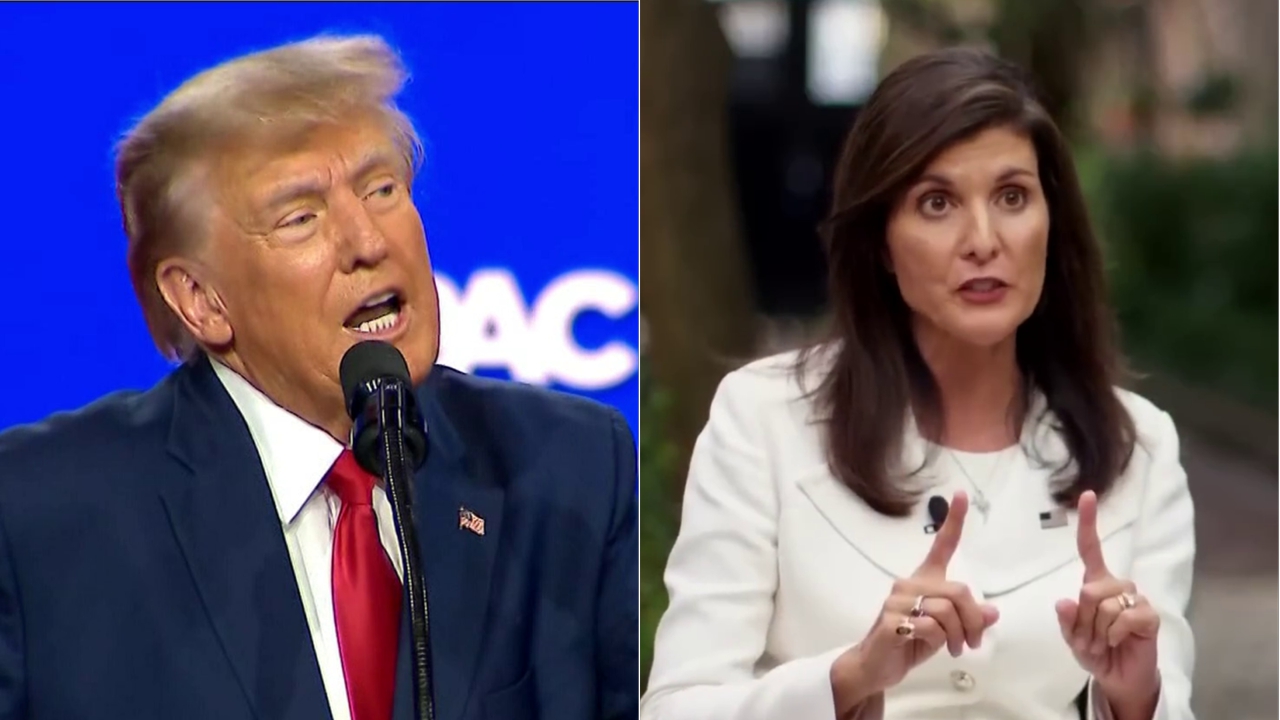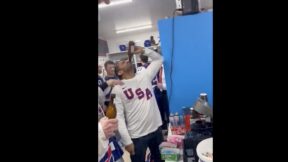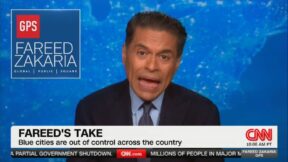Anatomy of a Smear: ‘Never Trump’ Writer Mangles Nikki Haley’s Words

Irony is dead and Jonathan V. Last, the editor of The Bulwark, is the murderer.
“Nikki Haley ‘Trusts Americans.’ Americans Should Not Trust Her,” he declares in the latest edition of his newsletter. But it his own, rather than Haley’s, credibility that is threatened by his argument.
He writes:
What is Nikki Haley doing?
Here was Nikki Haley being asked about the E. Jean Carroll defamation case on January 16.
Dana Bash: “How do you feel about your party’s frontrunner being held liable for sexual abuse?”
Haley: “I mean, first of all I haven’t paid attention to his cases and I’m not a lawyer. All I know is he’s innocent until proven guilty.”
And here is Haley on January 28 being asked about the E. Jean Carroll defamation verdict:
Haley: I absolutely trust the jury and I think that they made their decision based on the evidence.
That’s quite an evolution.
Haley went from not having any idea what the case was about, because she’d never paid attention to it, to having a thorough understanding of the case, the testimony, the evidence presented, and the law. Her understanding is now so thorough that she is able to determine that (1) the jury made the correct decision and (2) this decision was clearly driven by evidence.
Either Haley spent the last two weeks intensively studying the case, or you can’t trust anything she says.
This is a slippery, yet careless smear. Let’s deconstruct Last’s spurious attack on Donald Trump’s lone remaining opponent in the Republican presidential primary.
PROBLEM #1
The quote Last cites from Haley’s interview with Bash has been cut short — way short. Her full answer to Bash’s initial question was actually:
I mean, first of all, I haven’t paid attention to his cases and I’m not a lawyer. All I know is that he’s innocent until proven guilty. And when he’s proven guilty and he’s sitting in a courtroom, that’s exactly what I’m talking about. You’ve got investigations on Trump and Biden.
Already, the meaning of Haley’s words has changed. In the abridged version provided by Last, it sounds like Haley ended her answer by essentially declaring Trump innocent. Honestly presented, it sounds like she stated a general legal principle and then noted that he may be found guilty.
Later in the same interview, Bash presses Haley on the Carroll case, asking if she believes it to be politically motivated. Haley replies:
This one I haven’t looked at, but look, if he’s [Trump] found guilty, then he needs to pay the price. He needs to do what he’s supposed to. Every one of these cases, they need to be heard out. He needs to defend himself. If he is found guilty, he’s going to pay the price. If he’s not found guilty, then we move forward. What I will tell you is I’m focused on the economy, the border and education and getting our country back on track. If he’s sitting in a courtroom, that goes back to what I’m saying. We can’t continue to be distracted. We can’t continue to be in chaos. We have a country to save.
“If he’s found guilty, then he needs to pay the price.” Would you ever be able to surmise, after reading Last’s summation of the interview, that these words left her mouth?
PROBLEM #2
Pretend you don’t know the additional context of Haley’s comments concealed in Last’s original piece and read only the two excerpts he included in his indictment of Haley:
“I mean, first of all I haven’t paid attention to his cases and I’m not a lawyer. All I know is he’s innocent until proven guilty.”
“I absolutely trust the jury and I think that they made their decision based on the evidence.”
Last lays these out for readers as evidence of mealy-mouthed flip-flopping the way a dog proudly presents its master a slobbery tennis ball corpse. He never explains the supposed inconsistency between them because they aren’t inconsistent.
In the first, Haley says she hasn’t paid much attention to the case.
In the second, she says she trusts the motivations of the jurors.
These aren’t mutually exclusive answers, and that rather obvious truth is only reinforced by the larger context of Haley’s first answer.
PROBLEM #3
Last submits that in Haley’s second statement, she professes to have “a thorough understanding of the case, the testimony, the evidence presented, and the law. Her understanding is now so thorough that she is able to determine that (1) the jury made the correct decision and (2) this decision was clearly driven by evidence.”
This is an absurd assertion. At no point does Haley profess to have any such understanding of the fact pattern or the legal principles at play in the Trump-Carroll case. All she offered was a standard, boilerplate message conveying trust in the process and people who delivered the verdict — the kind that politicians should offer when asked about legal proceedings.
THE PROBLEM
Jonathan V. Last doesn’t seem to like Nikki Haley. Earlier this month, he penned an ill-timed column in which he argued that Haley’s ultimate objective was to be named Trump’s vice president right before she turned up the heat on her rival and vice versa.
Last — even as the editor of “a clear-eyed conservative news publication that stands in firm opposition to Donald Trump,” per a recent puff piece — is also under no obligation to write nice things about Haley.
Her longshot campaign may be the only remaining roadblock in Trump’s otherwise clear path to the Republican nomination, but if Last truly believes her to be a “untrustworthy, bad actor,” he should and even has an obligation to say so.
However, if we were to apply Last’s standard for Haley, that “when someone is an untrustworthy, bad actor, they’re always an untrustworthy bad actor,” to the writer, Last’s flawed diatribe can be taken as not just a mistake, but a definitive verdict on his reliability.
This is an opinion piece. The views expressed in this article are those of just the author.
New: The Mediaite One-Sheet "Newsletter of Newsletters"
Your daily summary and analysis of what the many, many media newsletters are saying and reporting. Subscribe now!






Comments
↓ Scroll down for comments ↓